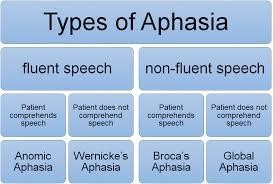The nurse is caring for a 67-year-old client in the medical-surgical unit following hemodialysis.
The nurse reviews the nursing note, vital signs, assessment, and medical history
Which clinical data is most concerning to the nurse? Select all that apply
A/V fistula assessment
Blood pressure
Pulse
Anuria
Oxygen saturation
Temperature
Neurological assessment
Correct Answer : B,C,D,E
Choice A rationale: A/V fistula assessment is not concerning because a positive bruit and thrill indicate adequate blood flow through the fistula. A dry dressing with scant amount of blood is expected after hemodialysis.
Choice B rationale: The client's low blood pressure could indicate hypotension, which can be critical, especially after hemodialysis. It may contribute to the client's reported dizziness and fatigue.
Choice C rationale: The client’s pulse is irregular which may indicate cardiac arrhythmia. Choice D rationale: Anuria, the absence of urine output, is a significant concern. It could indicate kidney dysfunction or inadequate clearance of waste products, which may have implications following hemodialysis.
Choice E rationale: Oxygen saturation at 92% is relatively low. While the client is alert and oriented, a low oxygen saturation level may indicate potential respiratory compromise or inadequate oxygenation.
Choice F rationale: Temperature is not concerning because it is within normal range.
Choice G rationale: Neurological assessment is not concerning because the client is alert and oriented. The dizziness is likely related to the hypotension and will resolve once the blood pressure is stabilized.
Nursing Test Bank
Naxlex Comprehensive Predictor Exams
Related Questions
Correct Answer is D
Explanation
Choice A rationale: Expressive aphasia is a type of non-fluent aphasia that affects the
ability to produce language. It is caused by damage to the anterior part of the left frontal lobe, which is responsible for motor planning and execution of speech. Patients with expressive aphasia can understand language but have difficulty speaking, writing, or naming objects. They often produce short, halting, and grammatically incorrect sentences with word-finding difficulties.
Choice B rationale: this is another term for expressive aphasia. The patient can
understand language but have difficulty speaking, writing, or naming objects. They often produce short, halting, and grammatically incorrect sentences with word-finding difficulties.
Choice C rationale: Global aphasia is a severe form of aphasia that affects both
comprehension and production of language. It is caused by extensive damage to the left hemisphere of the brain, which is dominant for language functions in most people.
Patients with global aphasia have little or no ability to speak, write, read, or understand language.
Choice D rationale: Wernicke's aphasia is a type of receptive aphasia that affects the
comprehension and production of language. It is caused by damage to the posterior part of the left temporal lobe, which is responsible for processing auditory and visual
information. Patients with Wernicke's aphasia can speak fluently but nonsensically, using words that are irrelevant, invented, or distorted. They also have difficulty understanding spoken or written language and following commands.

Correct Answer is B
Explanation
Choice A rationale: Elevated T3 and T4 with low TSH levels are indicative of hyperthyroidism, not a side effect of radioactive iodine treatment.
Choice B rationale: One of the expected side effects of RAI treatment for hyperthyroidism is permanent hypothyroidism (or underactive thyroid, when the thyroid does not produce enough hormones). Elevated TSH levels with low T3 and T4 are indicative of hypothyroidism.
Choice C rationale: Low TSH, T3, and T4 levels are not typical outcomes of radioactive iodine treatment; typically, the treatment leads to a decrease in T3 and T4 with increased TSH levels.
Choice D rationale: Elevated TSH and low T3 is major side effect of radioactive iodine treatment for hyperthyroidism. However, it does not cause elevated T4 levels.
Whether you are a student looking to ace your exams or a practicing nurse seeking to enhance your expertise , our nursing education contents will empower you with the confidence and competence to make a difference in the lives of patients and become a respected leader in the healthcare field.
Visit Naxlex, invest in your future and unlock endless possibilities with our unparalleled nursing education contents today
Report Wrong Answer on the Current Question
Do you disagree with the answer? If yes, what is your expected answer? Explain.
Kindly be descriptive with the issue you are facing.
